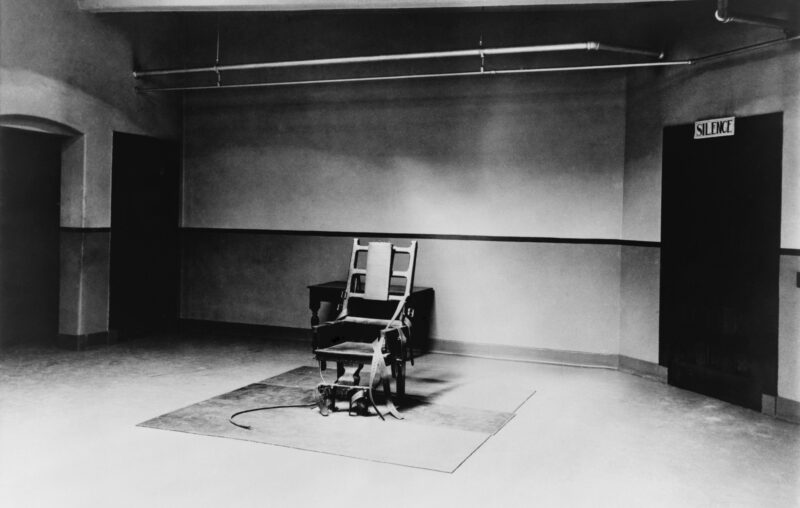Arguments Against The Death Penalty and Gun Control Have A Few Things in Common

Violent crime and homicides have spiked since 2020, capturing the attention of voters, and public opinion on the death penalty has proven surprisingly resilient. To examine these trends, consider two claims, one from the left and one from the right, that you’ve no doubt seen or heard:
- “The death penalty won’t be effective because murderers aren’t rationally comparing costs and benefits when murdering someone.”
- “Gun control won’t work because criminals aren’t going to obey gun laws.”
Both claims are wrong for the same reason: They fail to consider changes in marginal costs and marginal benefits. Economics is about comparing the additional (or incremental) costs to the additional (or incremental) benefits of an action.
For any action – including murder – we have a spectrum of motivated actors, from the truly committed who aren’t going to respond to small changes in costs and benefits, to those for whom the action would just barely be worth it (in their estimation). Now, imagine we introduce the death penalty for murder. The truly committed might not change their likelihood of committing murder or the number of murders they wish to commit. The death penalty might not do much to deter the Jeffrey Dahmers and Ted Bundys of the world. But the people for whom it was just barely worth it without the death penalty now think twice, and might be more cautious. It’s unlikely someone would choose not to murder a spouse after cool and calm deliberation over a spreadsheet. But someone robbing a house might hesitate to pull the trigger when they confront the resident, or a gang member might settle a dispute with fists rather than firearms.
I’m intentionally agnostic here about whether or not the death penalty is moral, or even how big the deterrent effect is if we measure it. Economics per se can’t answer either question: The first requires moral philosophy, and the second requires serious statistical analysis. In 1975, the economist Isaac Ehrlich published some of the first major statistical work on the question, and since then, his work has received considerable attention and criticism. Nonetheless, Gary Becker’s economic analysis of crime and punishment explains how even criminals respond to incentives.
Now, turn to gun control. Some hardcore criminals won’t obey gun laws regardless, but once again there is someone on the margin, for whom buying a gun or using one in a crime is just barely worth it. Making it harder to get a gun with background checks, taxes, bans, or whatever could deter some marginal gun buyers. It’s at least plausible (though not necessarily correct) that fewer guns in total mean fewer guns will find their way into the hands of people who want them for nefarious purposes. It’s also plausible (though not necessarily correct) that gun restrictions will make it harder for peaceful citizens to defend themselves. After all, they’re probably the ones who are most likely to obey the rules. Even if guns are outlawed, people will still be able to get them (just ask yourself how easy it would be to get crack or crystal meth if you really wanted it). But restrictions will, at the very least, make it a little harder.
This article, again, is agnostic about the effects. Many think gun ownership is a right that trumps utilitarian considerations like deterrent effects on crime, and “the right of the people to keep and bear arms” does not have a cost-benefit analysis qualifier. That’s a question for moral and political philosophy, however. The direction and size of the effect is a question for statistics. If the deterrent effect is larger for the law-abiding than for the lawless, gun control may yield more crime, or more violence.
We certainly can’t say, “There is no point to the death penalty [or gun control] because the average criminal won’t obey the law.” Just because the average criminal doesn’t obey the law, that does not mean the marginal criminal won’t.
Consider something a little less emotionally charged. For the same reason, higher gas prices lead to lower total gas consumption, holding everything else constant. Just because the average driver can’t or won’t change how much he drives when the price of gas goes up, someone out there changes how they drive because the price is a bit higher. Maybe you’ve forgotten what it’s like to have to count change in your car’s center console to figure out how much gas you can buy (or maybe, fortunately, you’ve never been in that situation), but in that case, the price of gas very directly affects how much you can drive.
Level-headed, emotionally detached reasoning is in short supply precisely when it is most needed. We must do the work, coin a phrase, and think hard about the arguments we confront. Maybe — just maybe — it will improve the discourse just a little bit. And if it saves one friendship, it’s worth it — or is it?










